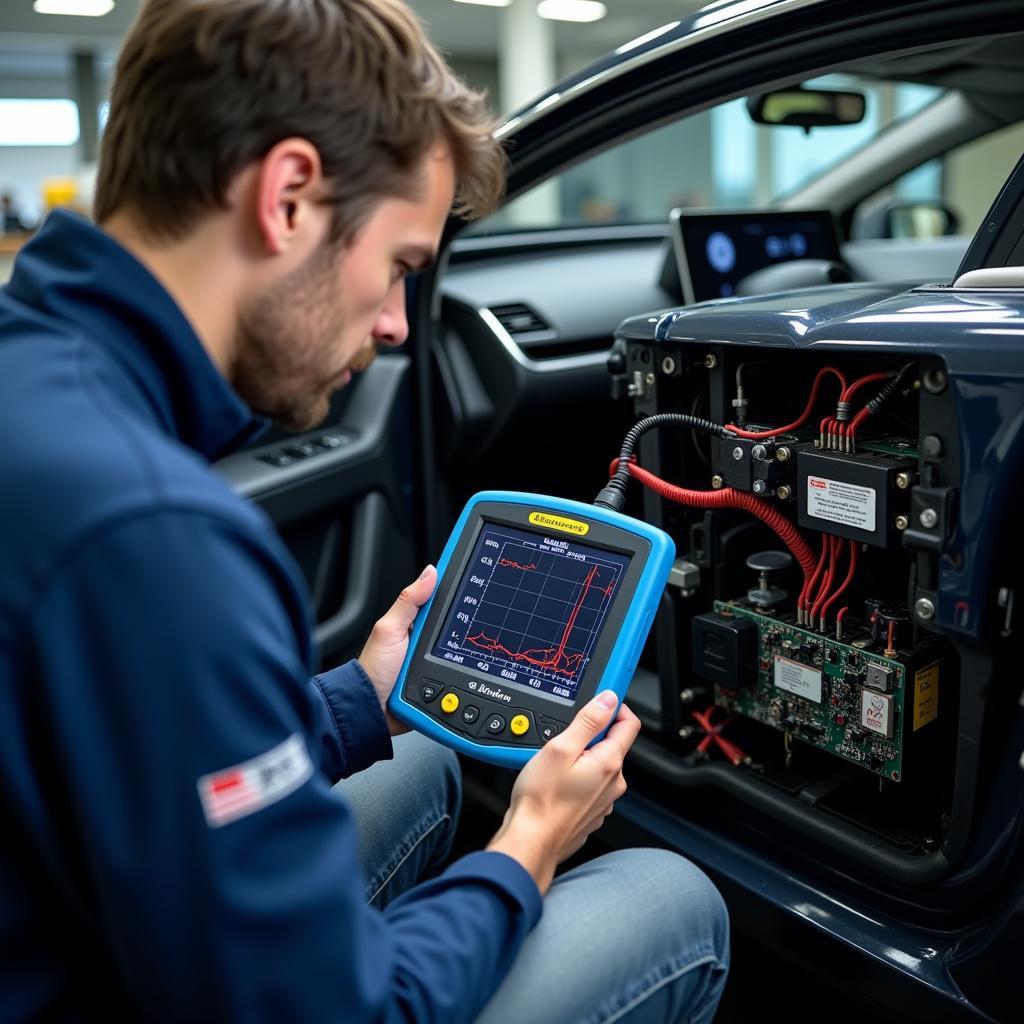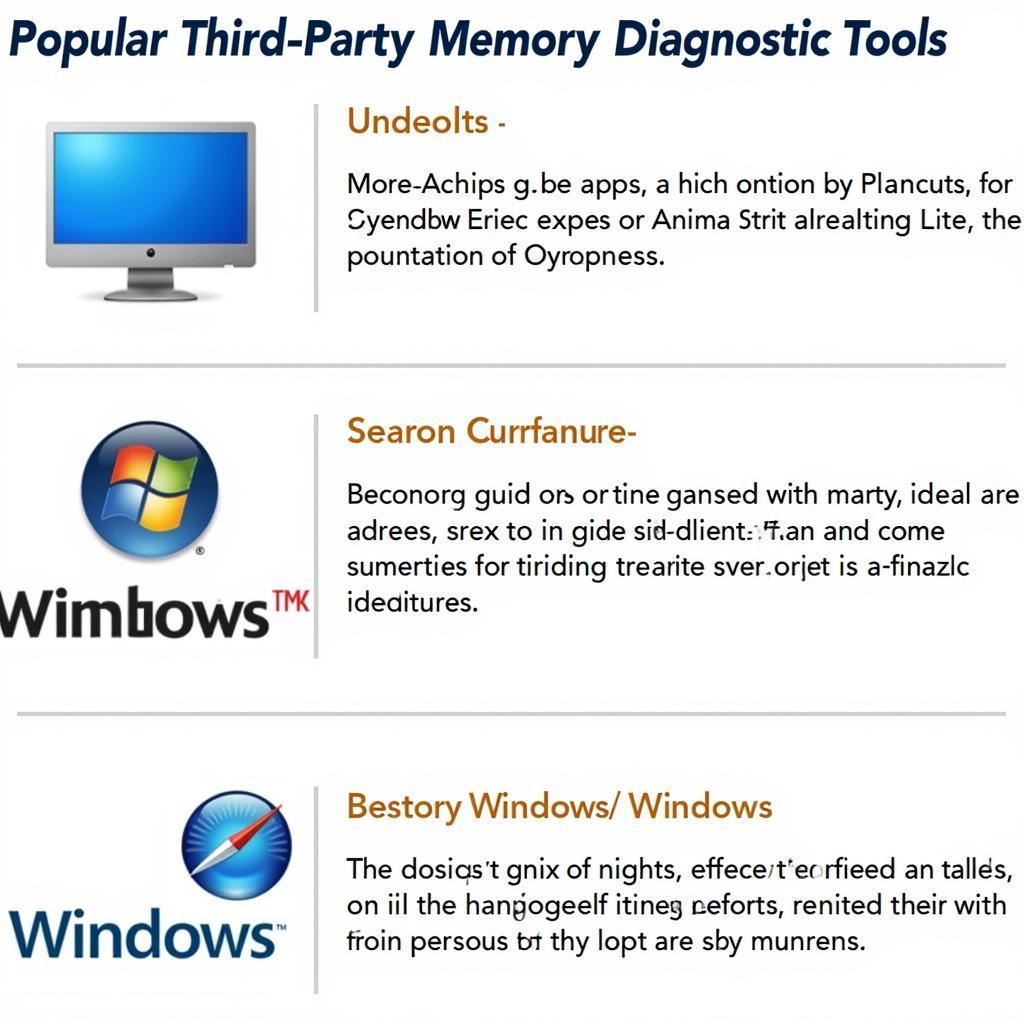The automotive industry is undergoing a rapid transformation driven by technological advancements. Today’s vehicles are equipped with sophisticated electronic systems that require specialized knowledge and tools to diagnose and repair. This is where Classroom Diagnostic Tools Training comes in, bridging the gap between traditional repair methods and the complexities of modern vehicles. This training is essential for both aspiring and experienced automotive technicians looking to excel in this evolving landscape.
One of the first things you’ll discover in a 2019 2020 classroom diagnostic tools course is the sheer variety of tools at your disposal. From scan tools and oscilloscopes to pressure transducers and multimeters, each tool plays a crucial role in accurately identifying and resolving vehicle issues. Understanding the specific functions and applications of these tools is fundamental to efficient and effective diagnostics.
The Importance of Hands-On Learning
While theoretical knowledge is crucial, nothing beats practical experience when it comes to mastering automotive diagnostic tools. Classroom diagnostic tools training provides the perfect environment for this, offering hands-on sessions where you can apply what you’ve learned in a controlled setting.
Imagine working on a real vehicle with a simulated fault, using a professional-grade scan tool to read and interpret fault codes. This is the type of practical experience that builds confidence and equips you with the skills to tackle real-world automotive challenges head-on.
Decoding the Language of Vehicles: Understanding Diagnostic Trouble Codes (DTCs)
Modern vehicles are constantly communicating their health status through a network of sensors and electronic control units (ECUs). These messages are often encoded in the form of Diagnostic Trouble Codes (DTCs), which act as vital clues for technicians.
Classroom training delves into the world of DTCs, teaching you how to:
- Retrieve DTCs: Using various diagnostic tools to access the vehicle’s onboard computer and extract the stored codes.
- Decode DTCs: Understanding the meaning behind each code, identifying the affected system or component.
- Diagnose DTCs: Utilizing the information provided by the codes to perform targeted troubleshooting and pinpoint the root cause of the issue.
 Diagnostic Trouble Codes
Diagnostic Trouble Codes
Beyond the Basics: Advanced Diagnostic Techniques
While retrieving and interpreting DTCs is essential, classroom diagnostic tools training goes beyond the basics, equipping you with advanced diagnostic techniques such as:
- Live Data Analysis: Monitoring real-time sensor readings to analyze system performance and identify intermittent faults that might not trigger a DTC.
- Component Testing: Utilizing specialized tools to test the functionality of individual components, such as sensors, actuators, and wiring harnesses.
- Software Updates and Reflashing: Learning how to update a vehicle’s software to the latest version, addressing potential software-related issues.
The Future of Automotive Repair is Digital
The automotive industry is rapidly moving towards electric vehicles (EVs) and advanced driver-assistance systems (ADAS). This shift necessitates technicians to acquire new skills in high-voltage systems, electric motor diagnostics, and sensor calibration.
 Electric Vehicle Diagnostics
Electric Vehicle Diagnostics
Classroom diagnostic tools training is keeping pace with these advancements, incorporating modules on EV and ADAS diagnostics. This ensures technicians are well-prepared to handle the vehicles of tomorrow, equipped with the knowledge and tools to diagnose and repair the next generation of automotive technology.
Conclusion
Investing in classroom diagnostic tools training is an investment in your future as an automotive professional. It equips you with the essential knowledge, practical skills, and confidence to excel in a field that is constantly evolving. Whether you’re just starting your career or seeking to stay ahead of the curve, this training is your gateway to a rewarding and successful journey in the world of automotive repair.
To explore comprehensive diagnostic tools and training options, contact ScanToolUS at +1 (641) 206-8880 or visit our office at 1615 S Laramie Ave, Cicero, IL 60804, USA.

